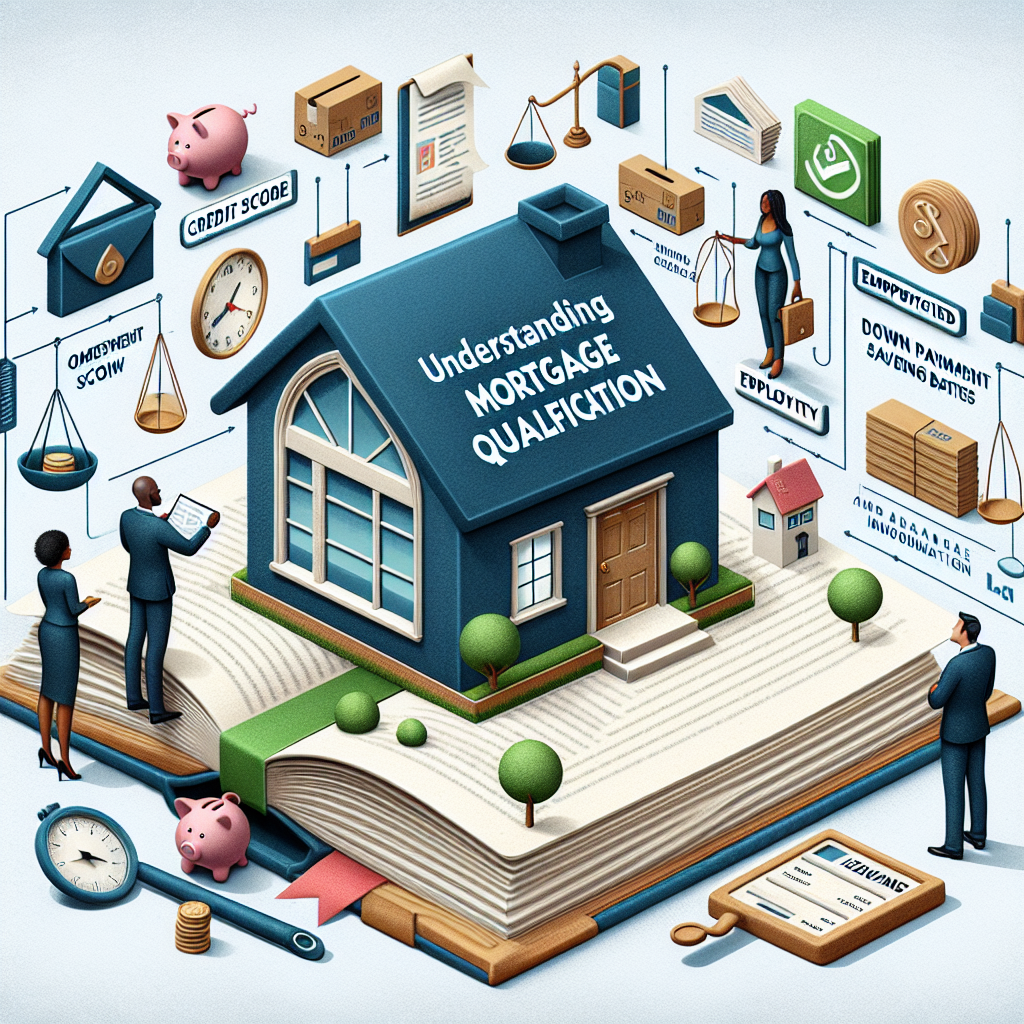Securing a mortgage is a pivotal step for many aspiring homeowners. It signifies not just the opportunity to own property, but also marks a substantial financial commitment that can shape one’s future. However, the journey to mortgage approval can be a complex maze filled with various prerequisites. Understanding the key factors that influence mortgage qualification can simplify the process and boost your chances of achieving approval.
1. Credit Score: The Gateway to Approval
Your credit score is often the first hurdle in your mortgage application process. This three-digit number, ranging from 300 to 850, reflects your creditworthiness based on your credit history. Lenders utilize this score to assess the risk of lending to you.
What to Aim For:
- Excellent (750 and above): Likely to secure favorable interest rates and terms.
- Good (700-749): Generally qualifies for competitive rates.
- Fair (650-699): May face higher rates and stricter terms.
- Poor (below 650): Difficulty in securing a mortgage without substantial additional documentation or a co-signer.
Tips for Improvement:
- Pay off existing debts.
- Ensure timely bill payments.
- Limit credit inquiries before applying for a mortgage.
2. Debt-to-Income Ratio (DTI): Assessing Borrower Capacity
Lenders also analyze your debt-to-income (DTI) ratio, which measures the percentage of your monthly income that goes toward servicing debt. A lower DTI indicates that you have a better capacity to handle additional mortgage debt.
Ideal DTI Ratios:
- 28/36 Rule: Ideally, your housing expenses should not exceed 28% of your gross monthly income, and your total debt (including housing expenses) should not exceed 36%.
Strategies to Improve Your DTI:
- Increase your income through side gigs or asking for a raise.
- Cut down on discretionary spending or debt payments prior to application.
3. Employment History and Stability
Lenders favor applicants with stable employment histories, as this suggests a reliable source of income. Typically, having at least two years of steady employment in the same field can strengthen your application.
What to Show:
- Consistent income.
- Employment longevity.
If You’ve Changed Jobs:
Demonstrate growth in your career or explain any employment gaps transparently to lenders.
4. Down Payment: The Savings Factor
The down payment can considerably influence your mortgage approval. It not only reduces the loan amount but also signals financial stability and commitment.
Standard Down Payment Expectations:
- Conventional Loans: Usually range from 5% to 20%.
- FHA Loans: Require as little as 3.5%.
- VA and USDA Loans: No down payment options available for eligible applicants.
Benefits of Larger Down Payments:
- Lower monthly payments.
- Reduced mortgage insurance costs.
- Potential for better interest rates.
5. Types of Loans Available
Understanding the different types of loans is essential when applying for a mortgage. Lenders offer various mortgage products, including fixed-rate, adjustable-rate, FHA, VA, and USDA loans, each with distinct qualifications and benefits.
How Choices Affect Qualification:
- Some loans, such as FHA mortgages, allow for lower credit scores and down payments.
- Conventional loans may require higher credit scores but often provide better long-term rates.
6. Other Considerations
While the above factors are pivotal, other elements can sway lenders’ decisions:
- Property Appraisal: The property’s appraised value must support the loan amount.
- Savings and Assets: Having additional savings can alleviate lender concerns about your financial stability.
- Loan Documentation: Ensuring that all documentation (such as tax returns, bank statements, and pay stubs) is in order and accurate prevents delays.
Final Thoughts
Understanding mortgage qualification is paramount as you embark on your homeownership journey. By focusing on critical factors such as credit score, debt-to-income ratio, employment history, down payment ability, and the various types of loans available, you can better prepare yourself for successful mortgage approval. Approach this process with clarity and preparation, and you may find the key to a successful home-buying experience lies within your reach.
